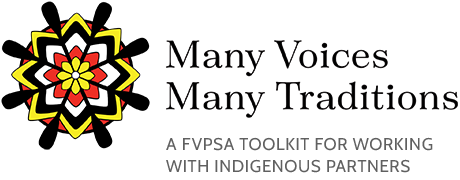When should State and Territory Domestic Violence provide support to Tribal domestic violence programs?
In states not served by a Tribal Coalition it is encouraged that the State and Territory domestic violence coalitions engage, outreach and provide support to tribal programs. The outreach to Indigenous Nations must be culturally specific and appropriate, as each Nation is unique in their tribal government structure, culture, customs, and language.
What are the best practices for outreach?
Outreach must start with learning about, understanding, and acknowledging the tribe including their history by doing your own research (this toolkit is a good start). Building trust through consistent communication, support, and resources is a first step in getting to know the community. Requesting meetings with tribal leadership for support and meeting with domestic violence advocates and tribal coalitions in understanding the needs of the community is a must prior to providing or engaging in any community events. Part of building this relationship will be engaging in consultation with tribal leadership as well as inviting them to statewide meetings and ensuring their representation where any matters of tribal services, outreach, and funding is being discussed.
Can tribal domestic violence programs be members of the coalition?
Yes, under FVPSA regulations at 45 CFR § 1370.20(b)(1). Membership in the coalition should also be extended to the tribal programs so that they are able to access the same member benefits as other domestic violence programs. Coalitions should review and update training materials to be inclusive of tribal communities and experiences of tribal domestic violence survivors.
What if there is not a tribal domestic violence program in my state?
If no tribal programs are present in the community, local programs will need to be able to provide culturally sensitive services, including providing space for cultural or traditional food, observances, or activities. Culturally specific resources, such as tribal coalitions, should be identified even if those resources are outside of the state.
Where can coalitions seek resources and assistance to support tribal programs?
State coalitions should reach out for support from the National Indigenous Women’s Resource Center (NIWRC) or Alaskan Native Women’s Resource Center (AKNWRC). Both are the FVPSA funded technical assistance providers for tribes. For support in working with the Native Hawaiian community reach out to Pouhana ‘O Na Wahine.
The Alliance of Tribal Coalitions to End Violence (ATCEV), the national technical assistance provider of Tribal Coalitions, is another great resource for State coalitions.
